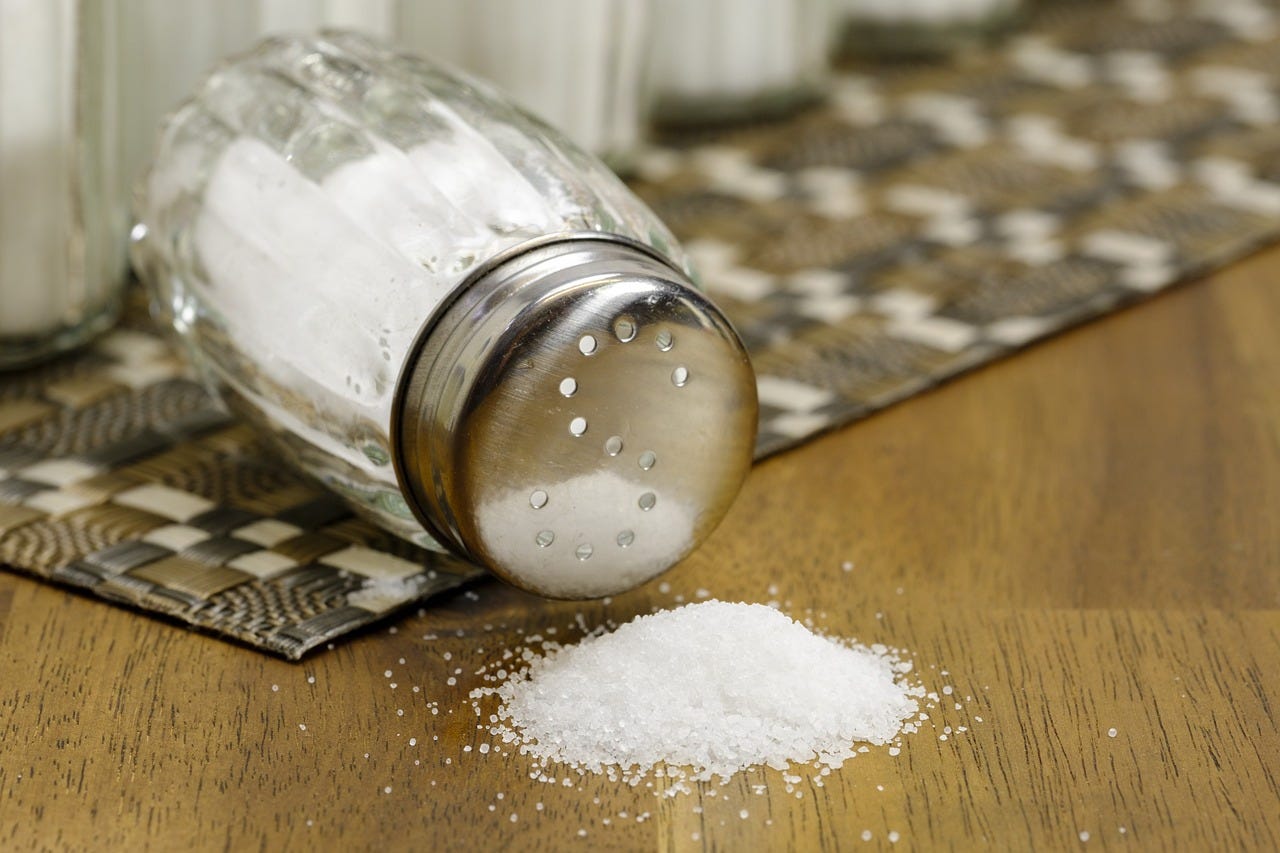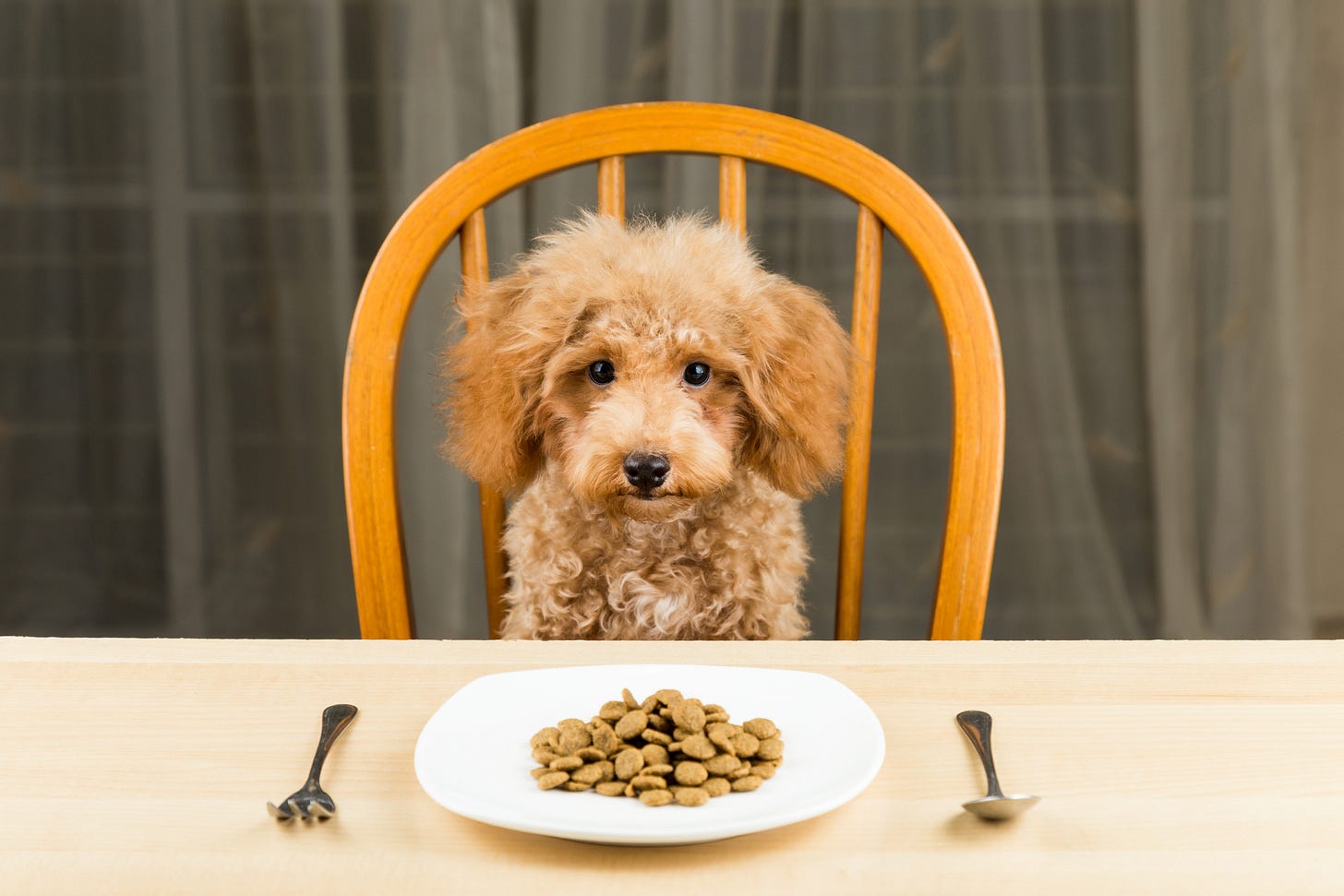This stuff is everywhere, risking the health of our animals - Part 2
Here's how you can protect or help your pets.
In the last post I introduced you to glyphosate. Now let’s talk about how it actually works, and the negative impacts it’s having on you and your animals.
The biochemical mechanism for destruction is via the shikimate pathway.
Years ago Monsanto ran with the propaganda that glyphosate was harmless to humans because we don’t have what’s called the shikimate pathway in our bodies as plants do. Glyphosate kills plants by stopping this specific enzyme pathway from producing certain proteins needed for plant growth. The problem is that microbes have this pathway, thus:
All the beneficial microbes in our bodies are affected by this toxicant!
It kills the good bacteria (critical for gut and immune system health), and preselects the overgrowth of not-so-friendly bacteria. It’s not a coincidence that the levels of Clostridium botulinum (botulism) are increasing on America’s farms, in the farmers themselves, and in their animals. Killing friendly bacteria also opens the way for the even more detrimental Salmonella bacteria to grow.
Glyphosate also chelates (bonds with) minerals like zinc, magnesium, cobalt, copper and calcium, which stops the plants from absorbing these minerals from the soil, ultimately starving the plants and killing them.
But the really cruel mechanism of glyphosate (also aptly called glypho-satan) is blocking major detox pathways in the liver, and thereby preventing the body from detoxing. Worst of all, in my opinion, is the way that glyphosate (and its accompanying ingredients in RoundUp) insure that the body can’t easily detox this poison or many other toxicants.
And what about cancer?
In 2010, the World Health Organization categorized glyphosate as a “probable carcinogen.” Of course Monsanto disputes this conclusion. They say there’s no evidence linking glyphosate to cancer; and they claim it’s non-toxic to people and pets and is “safer than table salt.”
According to the Pesticide Action Network (PAN) report on genetically modified organisms (GMOs), the evidence regarding Roundup’s safety is “based on outdated and largely unpublished studies by manufacturers.”
PAN has discovered from laboratory and epidemiological trials (particularly studies not conducted by parties who might benefit or have their profits threatened by the findings), is that Roundup “poses serious health hazards, including endocrine (hormone) disruption, DNA damage, cancer, birth defects, and neurological disorders.”
In case you’re wondering, the dosage for these studies was set for the realistic amount of glyphosate a person could consume by ingesting the Roundup residue on GMO crops. For those who regulate how much of any chemical is permitted in our food, current standards are of no use since those regulations are based on outdated subjective evidence.
If we can’t detox glyphosate, where does it go?
You can safely assume that you and your pets all have glyphosate in your bones, intestines, livers, spleens, kidneys, and muscles — just as mothers have it in their breast milk. Testing of two humans and one dog in my home all showed glyphosate in our urine, and we are an organic-food-only home, and don’t live around any food production areas.
According to the WHO, 1 in 4 people die from diseases of air, water, and soil pollution, chemical exposures, climate change, ultraviolet radiation — all results of human activities. It’s probably much higher if we were able to add the cumulative effects of multiple toxicants, over multiple years.
For an Holistic Dog Summit I hosted about 2 years ago I interviewed Dr. Stephanie Seneff, a major research scientist at MIT. Dr. Seneff’s primary research focus is showing the the many links of glyphosate exposure to chronic disease. These include: obesity, heart disease, infertility, cancers, auto-immune problems, inflammatory bowel disease, and brain disorders like ADHD, autism, Alzheimers, Parkinson’s disease, and depression.
How does glyphosate affect the health of my animals?
Top animal diseases likely linked to glyphosate are below. Notice the similarities between the lists of animal and human diseases linked to glyphosate…
Cancer: Nearly half of dogs over 10 years of age get cancer. For cats the number is less, but growing by the year. Cancer is a complex process but I believe glyphosate plays an important role in its development. Read more about this topic in my next post entitled: How Glyphosate Can Cause Cancer in Your Pets and What to Do About It!
Kidney disease: Glyphosate has been linked to more than 40,00 kidney disease deaths in farm workers in Sri Lanka and El Salvador. At the same time, kidney disease is on the rise in both dogs and cats.
Liver disease: Glyphosate blocks detoxification in the liver allowing the accumulation of toxins to build up in the body. When combined with the vast array of toxicants in our environment, the liver is overwhelmed and impotent.
Gastrointestinal disease: Glyphosate destroys ‘good’ bacteria causing many digestive issues and a compromise of the tight junctions in the gut lining leading to ‘leaky gut’ syndrome.
What about that convenient dry food everyone feeds?
A very inconvenient truth is that most dry pet food kibbles contain GMO ingredients like corn, soy and beets; and therefore most dry pet foods are contaminated with glyphosate.
Here is some dense research. But check out the foods that researchers Dr. Anthony Samsell and Dr. Stephanie Seneff analyzed in the same study mentioned above. Every pet food they tested contained glyphosate! They only tested a few products; but if you’re feeding your pets a non-organic commercial food, it almost certainly contains glyphosate.
Dr. Samsell also tested a number of human vaccines and found glyphosate contamination. The same companies make animal vaccines; so you can safely conclude there’s similar contamination.
How to minimize the effect of glyphosate for your animals.
Eliminate herbicides (especially RoundUp) or pesticides in your yard.
Educate your neighbors about the risks to them and the animals — wild and domestic.
Avoid parks, lakes, schoolyards, golf courses or other areas likely sprayed with herbicides. Do your research. Ask public officials what and when they spray at your favorite dog park.
Give your dog regular detox baths (I'll send you one for free when you sign up for my newsletter). Cats can benefit as well.
Start a detox program for your dog and even your cat.
Feed fresh foods, buying organic when possible. Remember: glyphosate doesn’t wash off the food. It’s in the food, in the meats.
Avoid commercial kibbles and canned foods. If you must use commercial foods, choose GMO-free foods. Check out the Non-GMO Project’s list of non-GMO pet products, and look for their stamp on the package.
Feed small amounts of fermented foods like sauerkraut or sauerkraut juice to help heal the gut.
Give your animal the following supplements. See below for dosages…
A multi-mineral supplement to restore lost minerals in the foods.
Glutathione — the best antioxidant for liver detox.
N-acetyl-cysteine — the precursor to glutathione.
Probiotics; but don’t spend extra for more billions of CFUs. Instead rotate different products that provide different bacteria families. Give as a bedtime treat on a spoon of yogurt. And don’t give continuously. Rather rotate periods off and on. Lactobacillus strains can bind metals and help balance gut health.
Fulvic and humic acids are soil-based minerals that can help heal and neutralize glyphosate damage.
So what about dosages? When you buy a supplement made for humans, assume the dosage is for a 150 pound person. Then adjust it for your pet’s weight. If you buy a product made for dogs or cats, follow the label directions. Start slow and increase; but you will need to continue using the supplements, because our exposure is continuous.
It’s impossible to avoid glyphosate exposure. But you can take action to minimize its damage to your pets … and yourself!
Thank you so much for reading my two posts about glyphosate. I hope it has helped you understand the dangers of this omnipresent herbicide; and how you can avoid or even help detox your animals and yourself from exposure. And please pass this to anyone you think might benefit from the information.





A wonderfully informative article! My son-in-law was using roundup all over our property so I convinced him to use 30% vinegar instead to kill the weeds. Works better and is much safer.